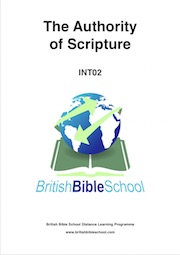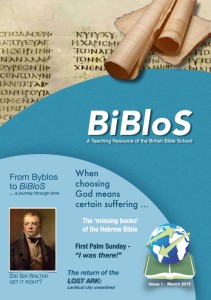There is, in Edinburgh, the largest monument to any writer in the world. It stands in Princes Street Gardens and is dedicated to Sir Walter Scott, the celebrated Scottish novelist and poet.
Scott had suffered from illness most of his life and following a recuperative visit to the Mediterranean aboard a government frigate he returned to his home at Abbotsford near Melrose – in the Borders. In his account of Scott’s life, John Lockhart writes: ‘Next morning he was still better. After again enjoying the Bath chair for perhaps a couple of hours out of doors, he desired to be drawn into the library, and placed by the central window, that he might look down upon the Tweed. Here he expressed a wish that I should read to him, and when I asked from what book, he said: “Need you ask? There is but one.” I chose the 14th chapter of St. John’s Gospel; he listened with mild devotion, and said when I had done: “Well, this is a great comfort – I have followed you distinctly, and I feel as if I were yet to be myself again.” In this placid frame he was again put to bed, and had many hours of soft slumber.’
“Need you ask? There is but one.” Just one book.
Of course, this one book is actually a mixed collection of smaller books, but as a volume it surpasses all others. More than being just a ‘very good read’ or the perpetual ‘bestseller,’ the book we call The Bible is absolutely unique – there really is only one like it. And it is unique in that its contents have been ‘breathed out’ by God, making it unlike any other book ever written.
Though the idea of there being ‘only one book’ – to say nothing of there being only one name by which we might be saved or only one way by which we might come to the Father – might be seen by many today as being somewhat intolerant, if not arrogant, once we understand the origin and nature of this book it all makes perfect sense.
If there is one God who created all that is both seen and unseen, including humanity with the ability to communicate with one another, then it seems quite reasonable to expect that were he to communicate with us he would do so in a consistent and unified fashion. If his purpose was to reveal himself to us in such a way that we might understand, then it makes sense that he would do so within the context of relationships – both with individuals and with collective groups. In this way God shows himself at work within the course of human history, primarily through the history of one chosen nation, and ultimately in the unique revelation of himself through his Son whom he sent, as it were, in our image – that we might know the nature and very mind of God himself.
Our own experiences teach us that if you really want to get to know somebody, you will not only want to rifle through their diary, but you might also want to read their letters, e-mails and shopping lists, listen in on their telephone conversations, rummage through their personal documentation and study their photograph albums. You will look at all different kinds of information to build up the big picture of what the person is really like. That is why God’s one book is actually a collection of documents, of all different shapes and sizes.
I am sure that that is the sort of thing that Lockhart might have done when researching the life of Sir Walter Scott – except that he had a distinct advantage: he knew the subject of his biography intimately. He was first his personal friend and then his son-in-law. And it will come as no surprise to hear that one distinguishing attribute of those documents that together form the book we call The Bible – though breathed out by the breath of God – is that they were penned by those who knew him.
So we have one unified revelation, revealed not in one single time or place, but in a collection of individual books or documents of many different types. There is law, historical narrative, there are poems and letters, there is prophecy and so on. The Bible as a whole collection of books makes sense of reasonable assumptions and expectations of revelation. Of course, there is much more that could be said of these expectations and of the processes of revelation, but the question still remains as to how we might know what ought to be in this ‘one book’ or whether the book we know as The Bible is indeed where God has spoken.
 To answer this we need to delve into the area of ‘canonicity’ and examine the ‘canonisation’ of the Bible and discuss what is known as the ‘canon of Scripture.’ This is actually a rather tricky subject, so the very best that we can do here is simply to make some brief observations. More avid readers will want to pursue our Module on ‘The Authority of Scripture.’
To answer this we need to delve into the area of ‘canonicity’ and examine the ‘canonisation’ of the Bible and discuss what is known as the ‘canon of Scripture.’ This is actually a rather tricky subject, so the very best that we can do here is simply to make some brief observations. More avid readers will want to pursue our Module on ‘The Authority of Scripture.’
In this context, a ‘canon’ is essentially an authoritative, definitive list of documents that go together to make up a recognisable collection. We might want to ask: “By whom is it to be recognised?” And this is a useful question. You may be aware that different traditions recognise alternative authoritative lists or canons. For example, if you were to look at the contents of a Roman Catholic Bible you would notice that their tradition holds to an alternative canon when it comes to recognising the books it regards as being authoritative Old Testament Scripture. Then there are those who suggest that almost any number of other ancient writings have as good a claim to be a part of the New Testament as many of those books already in it. So how can we tell which is the correct canon? How do we decide which books should be in, and which ones kept out? These are significant questions.
Thankfully, canonicity is not really about deciding which books ought to be in the Bible, and which ones left out – it is really more about recognising where God has spoken. A book is not considered to be canonical because someone or some people decided that it was authoritative and so should be included in the Bible – it is canonical because it is from God. Where God determines canonicity – we simply discover it. This is a really important principle to grasp.
In his book God has Spoken, J. I. Packer argues against the idea that “it was the post-apostolic Church that established the New Testament” canon of Scripture and he gives a very useful illustration. He says: “The Church no more gave us the New Testament canon than Sir Isaac Newton gave us the force of gravity. God gave us gravity, by His work of creation, and similarly he gave us the New Testament canon, by inspiring the individual books that make it up.” Of course Isaac Newton did not invent or create gravity – he recognised it by observing an apple falling from a tree (or so we are told). In the same way, mere mortals didn’t determine the extent of the canon – we merely discovered it.
The process of canonisation is not about some authoritative religious body or church council determining which books are to be given divine authority – God already determined that when he breathed his words through the prophets who wrote them into the pages of Scripture. A book is authoritative, and hence canonical, only because it has come from the mouth of God.
We need to understand that this is not merely some mechanical process in which academics tick boxes, fill out forms and compile reports before heading home for afternoon tea. This is a lengthy and sometimes complex procedure in which faith in the purpose of God plays an important part. We are dealing with matters that originate beyond this physical realm – discovering truths that truly transcend the arenas of conventional science and academia. One book? Most certainly! But one book, wholly unique in origin, nature and purpose.
Patrick Boyns
 This article is from BiBloS, a teaching resource of the British Bible School. To read more articles or download the whole of Issue 1, click here.
This article is from BiBloS, a teaching resource of the British Bible School. To read more articles or download the whole of Issue 1, click here.



